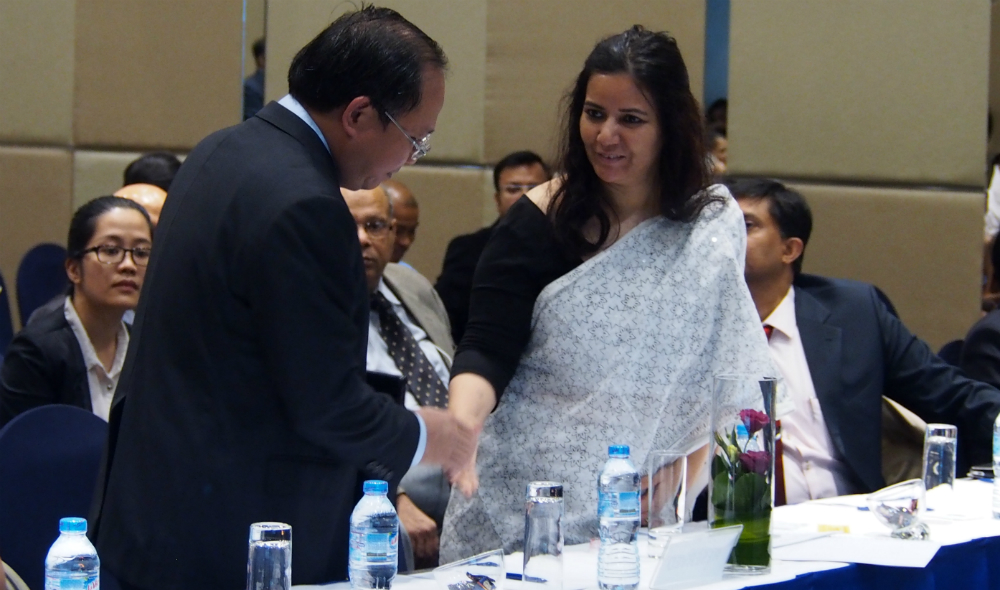India is calling for capital inflows from abroad, including Vietnam, to boost economic growth and job creation after a decade of slow growth and high inflation to set the stage for "Made in India" – a national program promoting industrial production launched by the Indian Prime Minister Narendra Modi at the end of September
"Made in India" was introduced by the Consulate General of India at the Novotel Saigon Hotel in Ho Chi Minh City on Tuesday. A showcase for a similar program will soon be held in Hanoi.
The program, which calls for foreign direct investment (FDI) into 25 priority areas of India, which Prime Minister Modi hopes will both promote domestic enterprises with the potential to grow into large companies, and attract high-quality foreign capital, technology and human resources from abroad.
The priority areas include cars, chemicals, information technology, pharmaceuticals, textiles, ports and aviation, travel, and rail, among many others fields.
To simplify administrative procedures, a website called www.makeinindia.com has been launched to provide information for foreign investors through frequently asked questions (FAQs). Questions posed directly by foreign investors will receive feedback from a specialized section of the site within 72 hours.
Additionally, after joining the website, potential investors, after sending a question, will receive more information about their areas of interest and constantly updated news in the form of newsletters. Specialized parts of the site will also watch potential investors for their country of origin, which fields they are interested in and their behavior when visiting the site to proactively provide necessary information.
A specialized section of the website also assumes the role of assisting potential investors when they come to India directly to explore investment opportunities, from the moment they get off the plane until they return home. A visa-on-arrival program for business visitors will also be applied.
In addition, there is a site for potential investors to be granted investment licenses with 24/7 operations called e-Biz. Many areas allow foreign investors 100% capital contribution, except for the defense sector, which has been expanded to allow contributions from 26 percent to 49 percent of the capital, and many defense products, which are limited by exclusive licenses, will be de-licensed so that they can be manufactured by others.
More than 21 types of industrial parks, divided by specific industries, have been licensed and are being developed over the past 100 days. These parks will feature a complete supply chain system, low logistics costs, plentiful labor and more options to upgrade production technologies.
According to official figures from the Foreign Investment Department under the Ministry of Planning and Investment, as of July, Vietnam has invested a total of $19 billion in 890 projects in 63 foreign countries and territories, but the number of investors in India is very modest, with just three projects with total registered capital of $23.6 million, said Le Phuoc Vu, Hoa Sen Group chairman and president of the Vietnam-India Business Forum.
Therefore, the potential for economic cooperation between the two countries is large, he asserted.
|
Ms. Smita Pant, the Indian Consul General in Ho Chi Minh City, said bilateral trade between Vietnam and reached $5 billion last year, with commitments to increase the figure to $7 billion by 2015. Indian FDI in Vietnam is currently at nearly $1 billion. This month there will be a high-level visit of Vietnam to India, led by Vietnamese Prime Minister Nguyen Tan Dung, along with a business delegation with representatives from leading companies. In August, India's Foreign Affairs Minister visited Vietnam, followed by a visit from the President of India a month later. The first direct air route between India and Vietnam is poised to start in less than two weeks. A memorandum of understanding for a sister city relationship between Ho Chi Minh City and Mumbai are being discussed, and all concerned parties are working on opening the first office of an Indian bank in Ho Chi Minh City, Pant added. |



















































